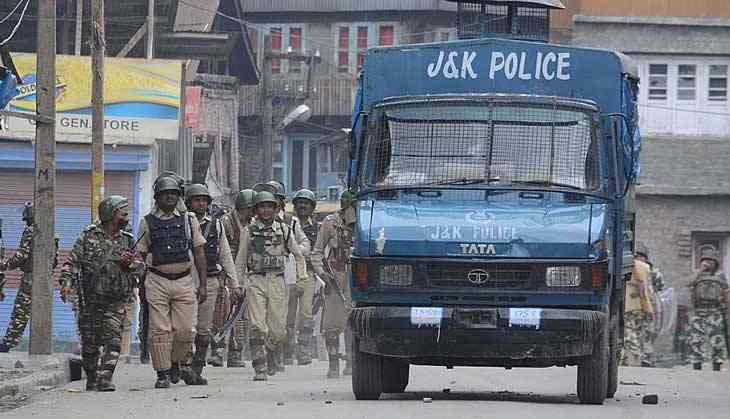Danger signs: new generation of Kashmir militants involving cops' families

Up until now, as part of a tacit code, militants and policemen in Kashmir didn't harm each others' families. But on Monday night, militants chose to unilaterally revise this mutually accepted rule of engagement.
Twelve gunmen raided the house of a Deputy Superintendent of Police-level officer in South Kashmir's Shopian town, and warned the family that he should either quit the job, or otherwise stop harassing the families of the militants.
Alarm bells
This was the first such raid, and considering its far-reaching implications for the anti-militancy operations in the state, the incident set alarm bells ringing in the security establishment. No less than Director General of Police SP Vaid issued a counter-warning to the militants.
“Militants should realise they too have families. Let them take this as a warning,” Vaid told NDTV, adding the conflict was between the police and the militants. “If the police start doing this, what will happen to their families?”
The militants, on the other hand, have justified the raid as a retaliation to the police raids at their houses and those of their sympathisers. “If the police harasses our families, we will do same,” the militants are alleged to have told the DSP's family members.
But, as a senior police officer said, the raid has attempted to cross a red-line that has traditionally been respected by all the sides in the conflict so far, even by the ruthless pro-government militia in the mid-1990s. Transgressions have been few and far between. For example, when pro-government insurgents or their sympathisers were killed by separatist militants, they would occasionally kill the members of their families in retaliation.
The police and the militants, on the contrary, would stay away from one another's families, knowing well it was an arena where both were vulnerable. The 'rule' has largely also been observed by the Army and the paramilitary forces.
“Though mounting pressure on the families could be an effective tool to get the terrorists rethink their choices, we have avoided doing this,” said a police officer, while citing Donald Trump's campaign threat that the United States will “take out the families” of terrorists in retaliation for their actions. “But we don't do this. Even in encounters, we make a clear distinction between terrorists and the family housing them.”
And the militants have done the same, in response.
New generation, new rules
But over the past year, the situation has transformed drastically. A new generation of militants has come on the scene, more so in South Kashmir, which is rewriting the rules of the game. Last year, Hizbul Mujahideen commander Zakir Rashid Bhat, in a video, threatened the J&K Police to stay off families of the militants.
“This is a fight between you and us, but you have involved our families. Don't do this,” he said.. “If we have families, you have families too. If you harass our families, we will not spare your families… Everybody has a family. You think your families are in Jammu so they are safe. Even if your families are in Kanyakumari, we have the capacity to kill them there.”
Bhat signed off with a grim warning: “Next time, think a thousand times before harassing our families. And if you still don't stay off our families, you will find the bodies of policemen in every lane and bylane of Kashmir.”
The police, however, deny that they harass militant families. “We don't do this,” said a police officer. But he accepted that the police was in touch with the families. “A family is the only point of contact with a militant. Our effort is to get the parents to persuade their children to give up the gun. We don't want to kill our own youth.”
Mehbooba's outreach
This policy was enunciated in the wake of the post-Burhan unrest, which sensitised the authorities towards the destabilising fallout on the situation of the killing of local militants who enjoy overwhelming public support.
In her speech during the recent session of the J&K Assembly, Chief Minister Mehbooba Mufti revealed that she had categorically directed the security agencies to ensure the return of the local youth involved in militancy to mainstream life.
“I told them (security agencies) they should take all the measures required for that,” the CM told the House.
Earlier, in the throes of the unrest in October, Mehbooba had counselled the J&K Police to work towards bringing local militants back into the political mainstream, and ensure they pick up “bat and ball”.
The policy has achieved marginal success. Addressing a gathering of youth in Srinagar on Tuesday, Mehbooba said that so far, around a dozen youth had given up the gun as a result of her government's outreach to them.
Some security experts explain the Shopian raid in the light of this policy, arguing it could be a militant move “to put brakes on this outreach”.
“This could be an attempt to discourage the contact between the families and the police,” said a police officer. “But this will hardly deter us. Our objective is not to harass their families but to save the lives of our youth who have strayed into militancy.”
First published: 9 March 2017, 19:42 IST
